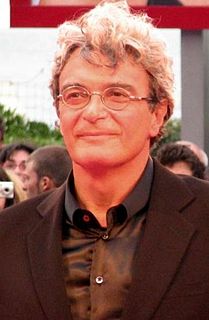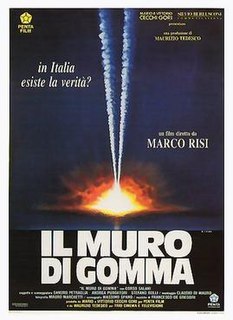
Ca' Foscari, the palace of the Foscari family, is a Gothic building on the waterfront of the Grand Canal in the Dorsoduro sestiere of Venice, Italy.

PAS Giannina Football Club, or with its full name Panepirotikos Athlitikos Syllogos Giannina is a Greek football club based in the city of Ioannina, the capital of Epirus region.
Latin American literature consists of the oral and written literature of Latin America in several languages, particularly in Spanish, Portuguese, and the indigenous languages of the Americas as well as literature of the United States written in the Spanish language. It rose to particular prominence globally during the second half of the 20th century, largely due to the international success of the style known as magical realism. As such, the region's literature is often associated solely with this style, with the 20th Century literary movement known as Latin American Boom, and with its most famous exponent, Gabriel García Márquez. Latin American literature has a rich and complex tradition of literary production that dates back many centuries.
Mario Antonio Cáceres Gómez is a Chilean footballer who plays as a striker.
Giannina Braschi is a Puerto Rican writer. She is credited with writing the first Spanglish novel Yo-Yo Boing! (1998), the post-modern poetry trilogy Empire of Dreams and the philosophical fiction United States of Banana, which chronicles the Latin American immigrants' experiences in the United States. "For decades, Dominican and Puerto Rican authors have carried out a linguistic revolution", noted The Boston Globe, "and Giannina Braschi, especially in her novel YO-YO BOING!, testify to it". She is considered an influential and revolutionary voice in contemporary Latin American literature. Her work has been described as a "synergetic fusion that marks in a determinant fashion the lived experiences of U.S. Hispanics." Written in English, Spanglish, and Spanish, Braschi's work seeks to capture the cultural experience of the 50 million Hispanics in the United States and also seeks to explore the three political options of Puerto Rico: Nation, Colony or Statehood. On the subject of the Island's lack of sovereignty, Braschi stated, "Liberty is not an option — it is a human right."

Francis of Assisi is a 1961 DeLuxe CinemaScope film directed by Michael Curtiz, based on the novel The Joyful Beggar by Louis de Wohl. It was shot entirely in Italy. The film was a box office loss. It starred Bradford Dillman in one of his few sympathetic leading film roles.

Naples Sings is a 1953 Italian musical melodrama film directed by Armando Grottini, starring Virna Lisi.

Domani è troppo tardi is a 1950 Italian melodrama film directed by Léonide Moguy.

Mario Martone is an Italian film director and screenwriter. He has directed 15 films since 1985. His film L'amore molesto was entered into the 1995 Cannes Film Festival. His 2010 film Noi credevamo competed for the Golden Lion at the 67th Venice International Film Festival. He was also the stage director for Lorenzo Ferrero's opera Charlotte Corday, which was premiered at Teatro dell'Opera di Roma on 21 February, 1989.

Teatro San Samuele was an opera house and theatre located at the Rio del Duca, between Campo San Samuele and Campo Santo Stefano, in Venice. One of several important theatres built in that city by the Grimani family, the theatre opened in 1656 and operated continuously until a fire destroyed the theatre in 1747. A new structure was built and opened in 1748, but financial difficulties forced the theatre to close and be sold in 1770. The theatre remained active until 1807 when it was shut down by Napoleonic decree. It reopened in 1815 and was later acquired by impresario Giuseppe Camploy in 1819. In 1853 the theatre was renamed the Teatro Camploy. Upon Camploy's death in 1889, the theatre was bequeathed to the City of Verona. The Venice City Council in turn bought the theatre and demolished it in 1894.

Yo-Yo Boing! is a Spanglish novel by Puerto Rican poet and novelist Giannina Braschi. Braschi is the author of the postmodern poetry trilogy "El imperio de los sueños/Empire of Dreams" (1988) and the postcolonial dramatic novel United States of Banana (2011). Published in 1998 as the first full-length Spanglish novel, Yo-Yo Boing! is a linguistic hybrid of literary Spanish, American English, and Spanglish. The book mixes elements of poetry, fiction, essay, musical, manifesto, treatise, bastinado, memoir, and drama. The New York Daily News called it an "in your-face-assertion of the vitality of Latino culture in the United States". The book dramatizes the tensions between Anglo-American and Hispanic-American cultures in New York City.

The Rubber Wall is a 1991 Italian drama film directed by Marco Risi. The film, which deals with the crash of Itavia Flight 870, entered the competition at the 48th Venice International Film Festival.

The Old Man of Belem is a 2014 Portuguese-French short film directed by Manoel de Oliveira.

The 75th Venice International Film Festival was held from 29 August to 8 September 2018. Mexican film director Guillermo del Toro was named as the President of the Jury. First Man, directed by Damien Chazelle, was selected to open the festival. Guillermo del Toro was named as the Jury President for the main competition section, with Michele Riondino hosting the festival.

The Flag of the Republic of Venice, commonly known as the Banner or Standard of Saint Mark, was the symbol of the Republic of Venice, until its dissolution in 1797.

Giuseppe Tomaselli was an Italian actor and operatic singer (tenor).

















